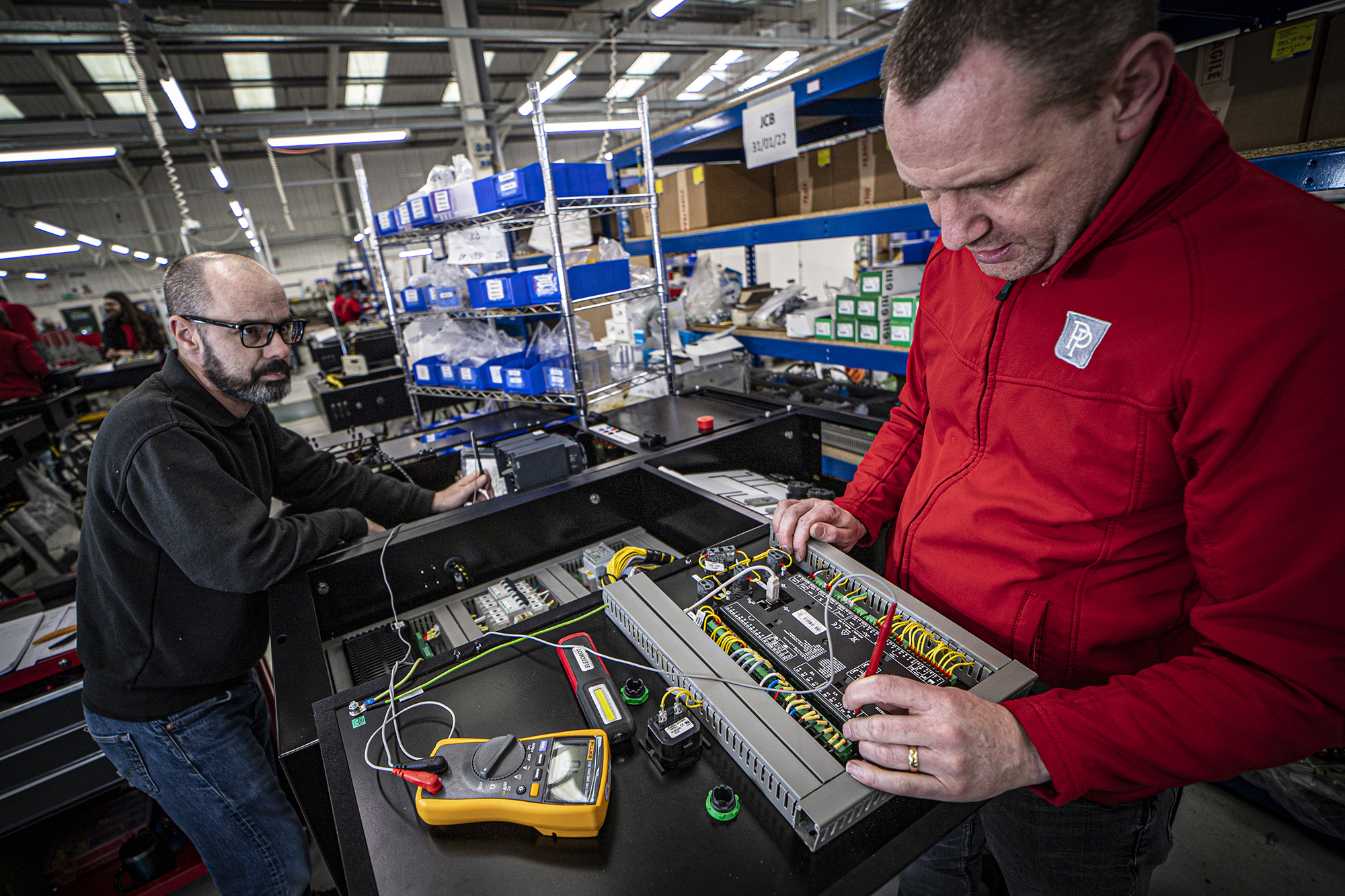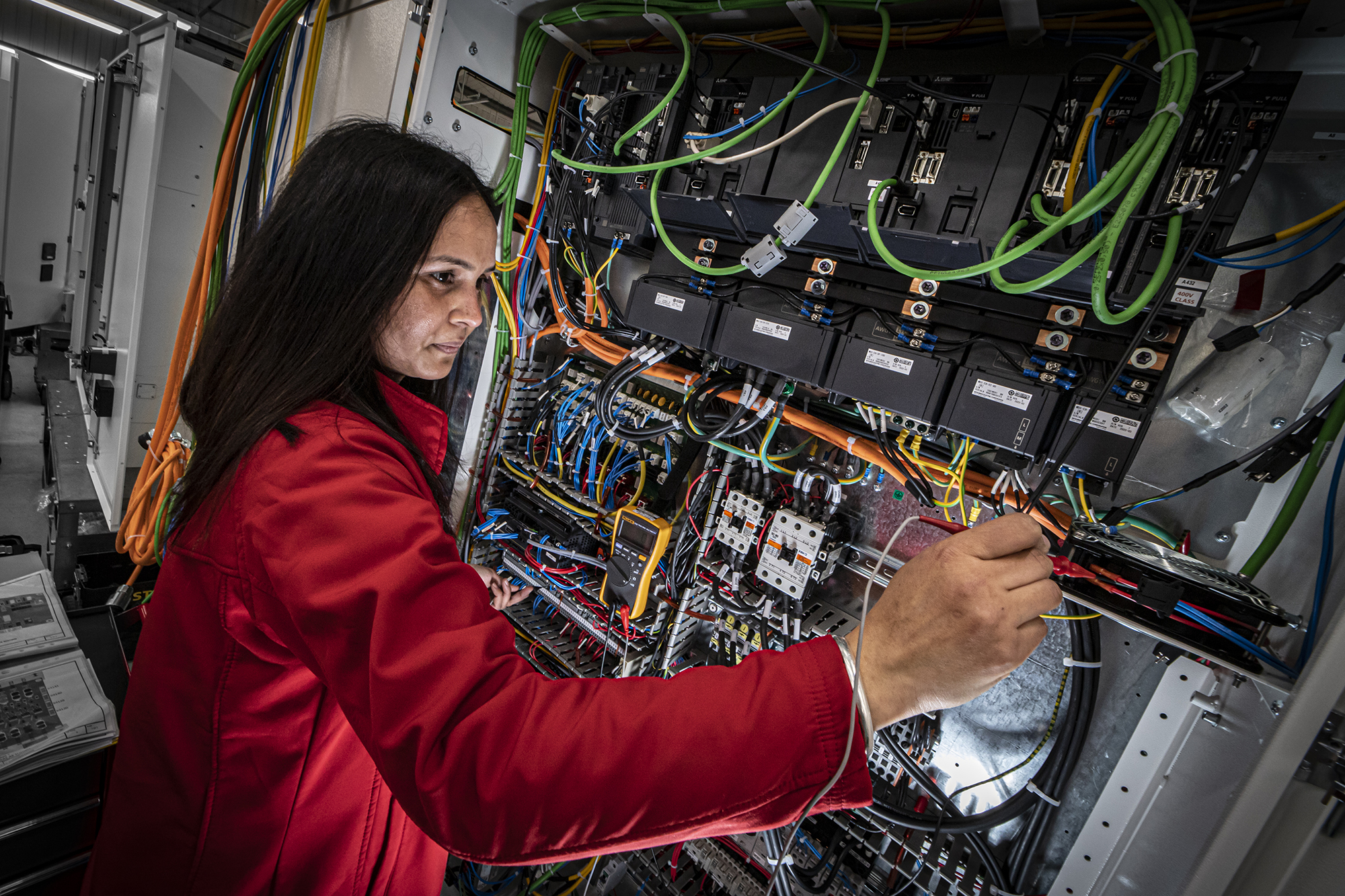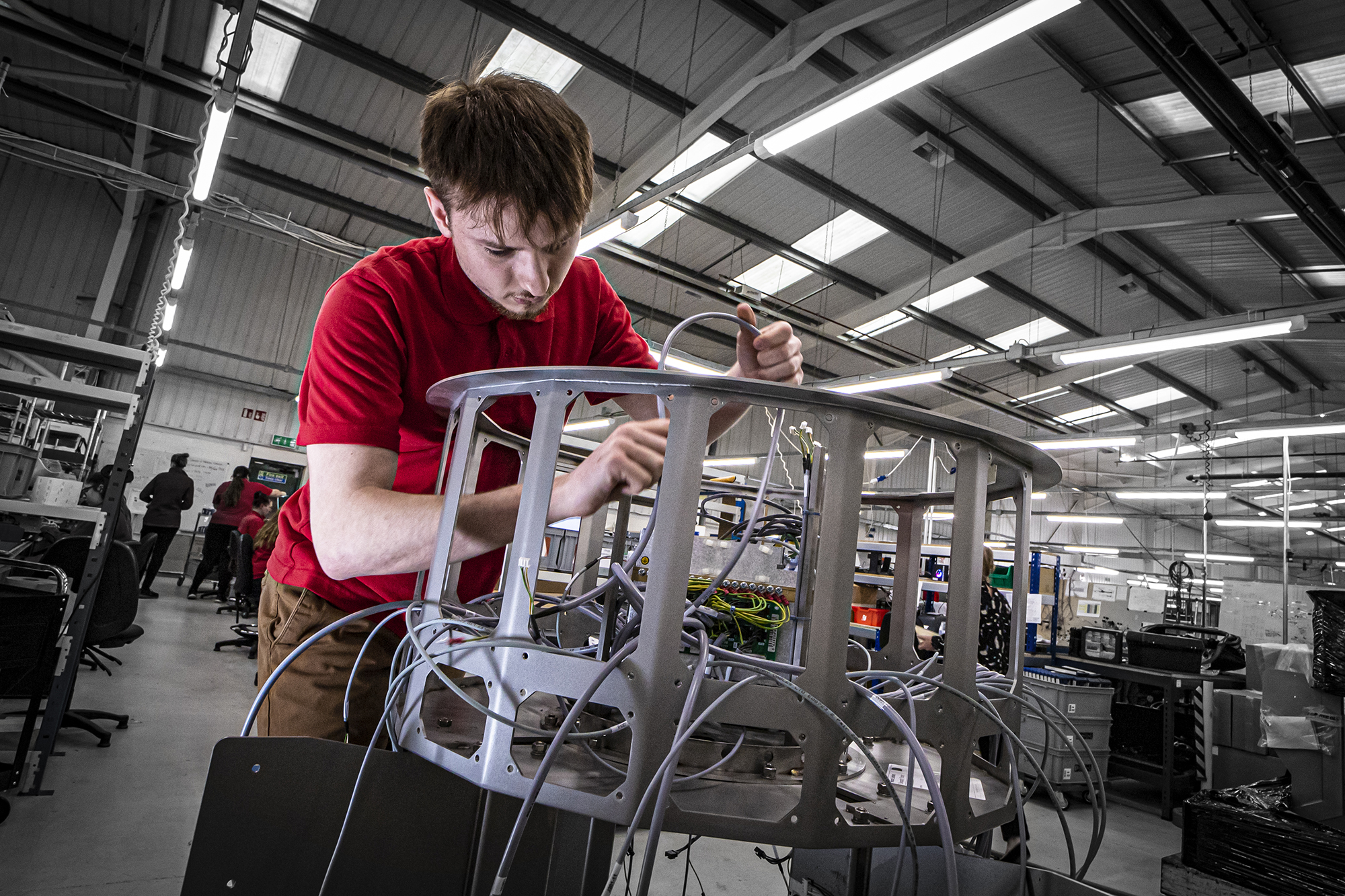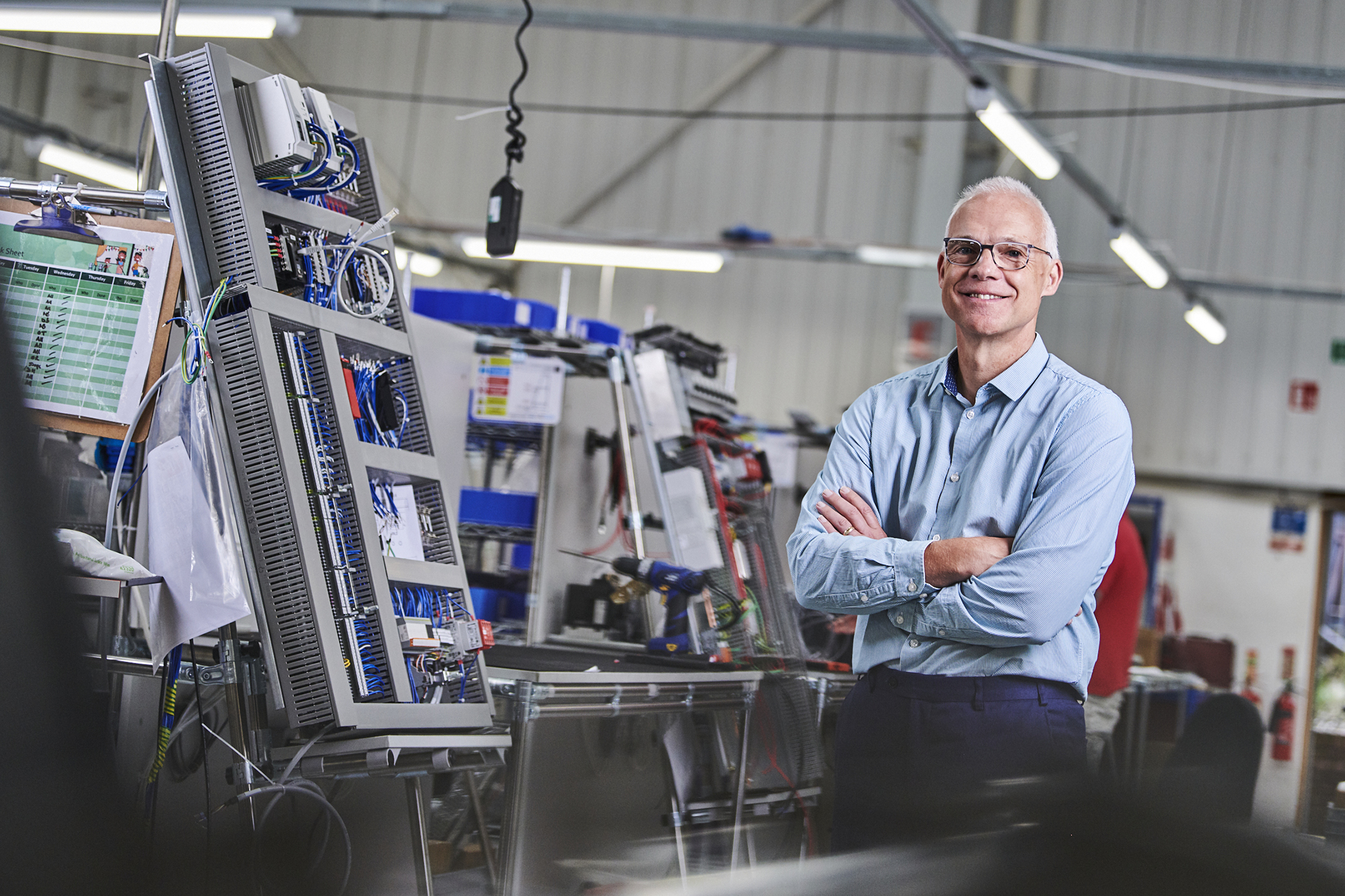5 minute read • published in partnership with PP Control & Automation
Opinion: UK manufacturing’s era of ‘pragmatically adaptive’ strategy is underway – Part one: Supply chain resilience
Tony Hague, CEO of PP Control and Automation (PP C&A), responds to recent survey data from Make UK, in the first of three opinion pieces exclusively for Zenoot. In this opening account, he explores the power of collaboration in building robust supply chains.
The 2025 executive survey by Make UK and PwC UK examined the current state and outlook of the UK manufacturing sector, highlighting significant challenges of rising employment and energy costs – stemming partly from recent government policies. It’s fair to say those policies are the talk of the manufacturing community, and the pressures inherited are serious ones. You would imagine it leaves nothing but a bitter taste. But, in fact, the survey does reveal optimism, albeit cautious optimism.
Furthermore, the data from Make UK’s 2025 investment intentions paints a picture of a domestic manufacturing sector that is pragmatically adaptive rather than purely optimistic or pessimistic. ‘Pragmatically adaptive; sounds kind of boring doesn’t it, and I suppose it is. However, it is perhaps what is needed, and in truth, reflects the economic realities we all face.

Make UK Executive Survey data highlights manufacturers are prioritising new product development, technology deployment, and market expansion / Picture: PP C&A
And what are those investment priorities?
New product development (78%), technology deployment (49%), and market expansion (37%). Rather than reflecting bullish confidence, the data suggests measured resilience. This is a nod towards the ‘cautiously optimistic’ stance that the UK manufacturing community has become very used to in recent years – with no signs of this changing quickly.
Key areas
• Manufacturers appear to be investing in key areas that will secure long-term competitiveness rather than speculative growth. This shows an understanding that economic pressures, such as rising costs, supply chain uncertainties, and regulatory challenges, are real and must be managed strategically.
• The focus on product innovation indicates an effort to stay ahead of shifting market demands and to counteract price pressures
• The emphasis on technology adoption signals an awareness that automation and AI are now necessities for improving productivity amidst rising employment costs
• The moderate investment in market expansion suggests that manufacturers are not looking for aggressive expansion but are selectively exploring new avenues.
Productivity will play a big role with rising operational and employment costs, whilst continued supply chain disruptions will prompt investment in digital supply chain management and automation. The increasingly complex geopolitical uncertainties will make selective market diversification a more cautious approach, as opposed to widespread global expansion.
If the data from the report suggests that manufacturers are all weathering the same storms, are aligned on priorities, and share strategic growth drivers, then it begs the question – ‘why do it alone?’

Tony says the UK manufacturing sector’s adoption of a “pragmatically adaptive” strategy amidst rising costs and supply chain challenges is actually what is needed / Picture: PP C&A
Strategy as a collective effort
Investment in innovation, technology, and market expansion with productivity improvements and building on supply chain resilience, is viewed as critical, and in our experience, no matter the challenge or strategic direction, collaboration can be the unifying force behind bold results. A force that can both accelerate progress and mitigate risks.
There are countless strategy-laden quotes from the famous Austrian American management consultant, educator, and author, Peter Drucker, but this one seems appropriate for the times we live in: “Plans are only good intentions unless they immediately degenerate into hard work – with others.”
Make no mistake; success in all the key report findings requires us to be determined in our pursuit of collaboration. And with that, we can speak from experience. In this opening opinion piece, we’re focusing on supply chain collaboration – an important tactic in the approach to delivering the current strategic priorities of manufacturers.
Supply chain partnerships
At PP C&A, a robust supply chain is non-negotiable. Its importance is driven by the fact that our customer’s supply and stock risk is mitigated when we inherit, manage and optimise their supply chain.
It’s central to the value we add as an outsourcing provider, so over the years, it has meant turning suppliers into value-add partners and technical guides, rather than simple transactional relationships.
Covid was the largest disruptor to supply many manufacturers have ever faced and, whilst there was no clean escape, there were ways to minimise the impact. I can refer to this period and the strategies we deployed as perfect examples of effective supply chain partnerships. Specifically, this following example of alternate technologies bypassing the constraints of the electronics market is amongst the most memorable.
A long-standing packaging equipment customer faced major supply chain risks due to power supply shortages disrupting machine builds. Short-term fixes using off-the-shelf alternatives failed to address the root issue, as these too relied on the same scarce electronic components.
PP C&A engineers reacted quickest to the pending disruption and leveraged a network of key partners and suppliers, engaging a local designer and manufacturer of custom switch-mode power supplies. Our specialists, now collaborating with a substantial design resource, proposed an innovative solution – redesigning the power supplies using traditional analogue technology, which relied on more readily available components. This approach created a disruption-proof solution.

Tony highlights that the data from the Executive Survey suggests a determined and strategic mindset within UK manufacturing / Picture: PP C&A
The UK-based partnership, with all three companies within a 10-mile radius of each other, strengthened local supply chains, secured employment, and even led to job creation. The customer was not only helped in resolving supply issues but also optimised its design for manufacture. This unforeseen challenge became an opportunity, enabling a production ramp-up to meet strong demand.
It wasn’t the only example born from this period of disruption. PP C&A has partnered with a global machine tool builder for over 30 years, evolving to support ‘Design for Manufacture (DFM)’ at early stages. When supply chain disruptions threatened production, a critical design protection system became the bottleneck due to reliance on a single supplier.
To restore control, engineers from both companies collaborated to redesign the system, ensuring compatibility with multiple suppliers. By optimising mechanical layouts and sourcing interchangeable components, a hybrid supply chain was created. In just three months, we helped stock new components, securing long-term resilience. The optimised solution is now implemented across additional machine models, reinforcing reliability and mitigating future risks.
It was an incredible time for thinking outside the box – made all the more successful when combining minds and leaning into strong relationships. It was also a time when we felt a moral obligation to give back to the manufacturing community and do something that went even further. With this thought, we founded #UKMfgUnite, a network connecting manufacturers to local suppliers and solutions, championing the reshoring effort.
The concept grew rapidly into a directory of over 300 businesses and was fundamental in securing work to support the ventilator challenge, with our business remaining fully operational to produce more than 25,000 electrical harnesses, delivering assemblies daily to keep up with demand.
This kind of collaborative working, co-developing strategies, and providing a ‘surprisingly simple’ solution is at the heart of a progressive culture continuously being developed at PP C&A. It’s our customer-centric approach to building trust and, of course, confidence – a crucial ingredient in any business relationship.

Tony Hague, CEO of PP Control & Automation / Picture: PP C&A
A three-part series
Covid was the toughest test many of us have ever faced in business, and stories of resilience and working together should give the manufacturing community encouragement as it navigates yet more, albeit different, headwinds.
The Make UK report tells an interesting story. Whilst not driven by blind optimism, the data suggests a determined and strategic mindset within UK manufacturing. The focus is on long-term competitiveness rather than short-term gains, with investment choices made from necessity rather than economic buoyancy.
The industry isn’t in a defensive posture – it is recalibrating and ensuring that the right strategic moves are made for sustainable growth.
We’ll break down more of the priorities stemming from the report in the coming weeks. Next time around, PP C&A Marketing Manager Richard Spears will advise on selective market share gains, diversifying, and building unique market positioning through strategic collaborations.
Until then, if your strategic priorities align with those in the report, remember that you’re not alone and sometime a problem shared is a problem halved!